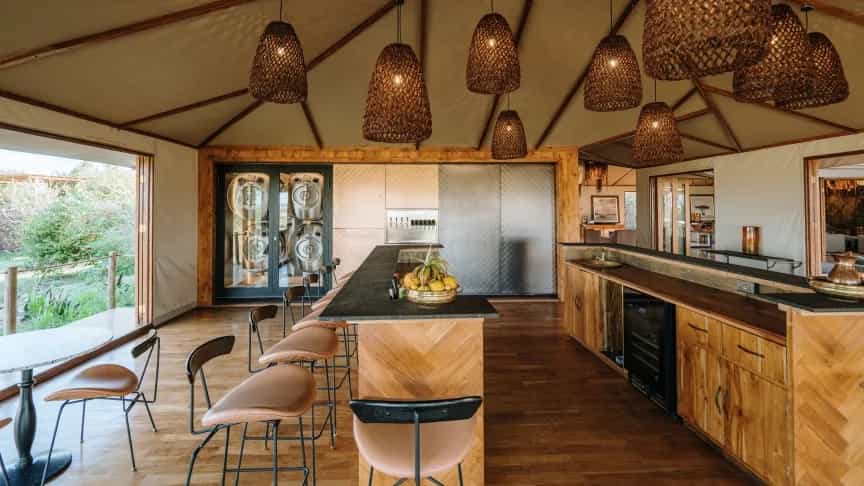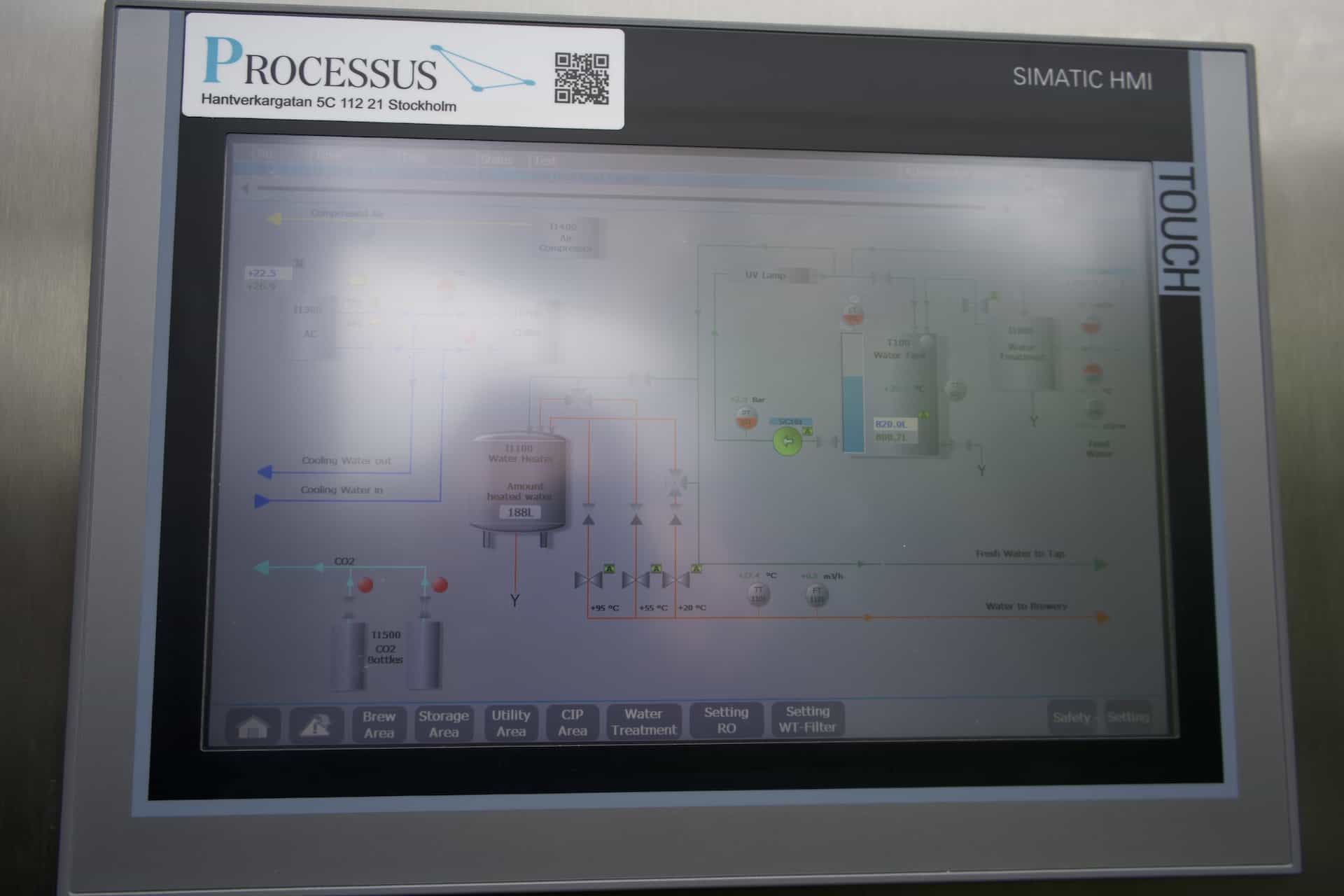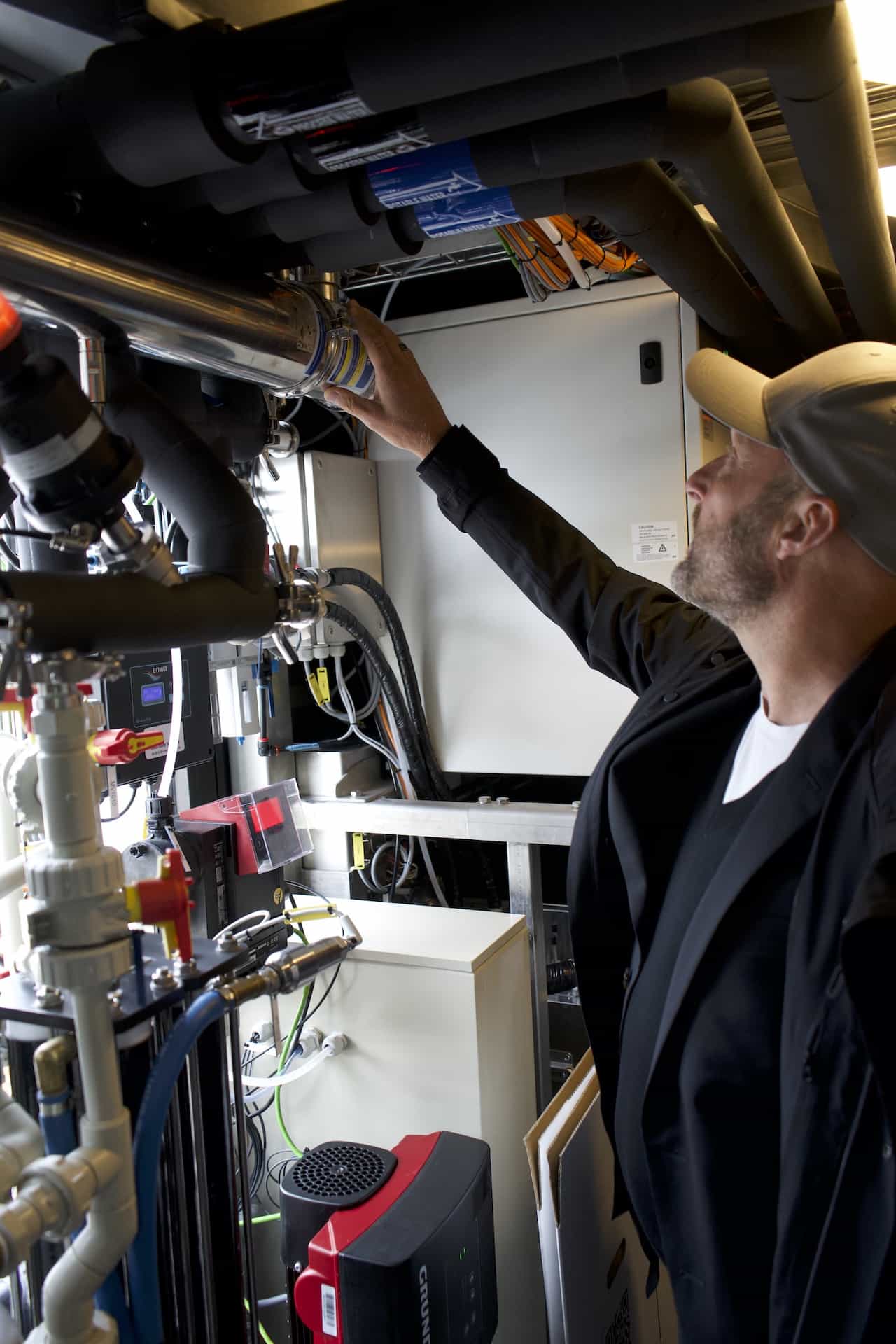
💧 The Swedes that wants to provide the world with clean drinking water
What if there was a Tesla for water? An organization that swept in and addressed a big problem in a new innovative and scalable way. This is what Swedish Wayout wants to do.
Share this story!
Swedish Wayout has created a micro-factory, that can be plugged in anywhere in the world where there is power and a water source. The factory, the size of a standard container, can locally produce water and beverages with, according to Wayout, a minimal ecological footprint.
"There is massive waste going on right now. There is no reason to get water from Evian in Switzerland and transport it in plastic bottles around the world. Water is everywhere. Our system can make that water clean and either let you drink it directly or create other beverages from it, on the spot," says Creative Director Martin Renck.

Virtual water pipes
Rethink is a word that keeps coming back. Martin Renck emphasizes that we can't do the same thing we started with a couple of hundred years ago. It's time for a new industrial paradigm.
"In many countries in the world, there is a huge opportunity in leapfrogging. There are no electric lines, no copper cables for communications, no water pipes, or perhaps even roads. And we can't move a whole city to dig all those things down, we have to find a new way," says Renck.
Instead of physical water pipes, there can be virtual ones. Instead of physically checking the status of the water system, it can be done with sensors that create massive amounts of data.
"I can, right now, from Stockholm see exactly how our micro-factory in Serengeti, Tanzania is doing. We measure everything, checking production and water quality. This also means pro-active maintenance," says Wayout CEO Ulf Stenerhag.

With many micro-factories connected emerges a holistic view of the whole water system.
"Ultimately we can see and understand consumption patterns. We get business intelligence from the whole ecosystem and can, for instance, connect that with health effects," says Stenerhag.

Going big
In order to go big, and really provide the whole world with clean drinking water, several things are needed.
"We are a startup from Stockholm. In order to get big fast, we need strong friends. That is why our units are produced by Alfa Laval, they have factories all over the world. Ericsson is building the Internet of Things system and Telenor provides the connectivity while Siemens provides automation."
Stenerhag emphasizes that these companies are not only suppliers but partners, which is essential in order to go industrial both in terms of scale and pricing.
"If a nation-state thinks this is interesting as a way of creating a communal water system, we can't say that we will deliver in a couple of years. We have to be able to scale up fast," says Stenerhag.

Water-as-a-Service
Another factor is standardization. The container-sized micro-factory is one size fits all and the spine of the business model. One factory can clean 150,000 liters of water per month, even seawater.
"In warmer parts of the world, this means about 1000 people can get their daily needs from one factory. In cooler parts of the world, it is enough for 2-3000. But you can stack them, so 10 modules mean 10000 people."
The module system makes it feasible to scale up fast, and yet provides solutions for many different communities.
Lastly, the whole thing is provided as Water-as-a-Service, you pay per liter. This means no big capital investment and lowers the bar for far more communities to get clean water.
Innovative yet standardized design and a strong focus on scaling up, fast. A clear and grand vision of doing something both for the planet and people.
💧 That sounds a bit like Tesla right?
By becoming a premium supporter, you help in the creation and sharing of fact-based optimistic news all over the world.


